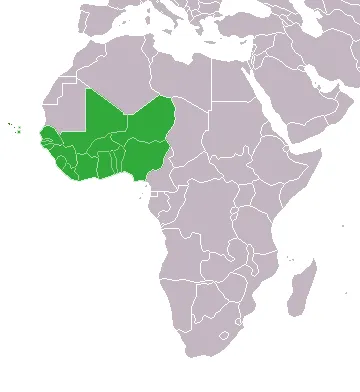Solar becoming best option for West Africa's future power mix
- The Economic Community of West African States must focus on the growth of solar PV to fulfill rising power need over the following 30 years, according to a freshly released research study.

The nations of West Africa need to make solar PV the "prime resource" in their future power systems as they decarbonize in the years leading up to 2050, according to a freshly released research study by a group of scientists in Finland.
The Economic Community of West African States (ECOWAS) requires to significantly increase creating ability over the following 3 years to equal an awaited rise in electrical energy need. However there is no demand for participant states to construct brand-new coal-fired centers as well as nuclear plants, as solar PV is preferably placed to work as the "prime resource" of the area's future power mix with 2050, claimed scientists from LUT University in Lappeenranta, Finland.
Specifically, hybrid PV battery systems will certainly be one of the most budget friendly alternative to ECOWAS via 2050, according to scientists from LUT University in Lappeenranta, Finland.
" The ECOWAS power plan ought to position solar PV at its core. Crossbreed solar PV-battery power systems show up the least-cost service for the area," the scientists stated in a brand-new paper released in the Renewable Energy journal. "A solid transmission grid facilities can make it possible for significant wind power generation from Niger and also Mali, which can additionally decrease the whole power system [levelized expense of power] of West Africa."
No aids
The scientists asserted that the ECOWAS area can help with "significant" renewables implementation in the years in advance without the requirement to count on state financing. They declared that renewables provide the "least-cost alternative for the West African power system without aids." The paper suggests for a local plan structure that decreases financial investments in standard nuclear power plant, backed by "detailed power market reforms" as well as "enthusiastic" long-lasting targets for renewables implementation.
They attracted their verdicts utilizing direct optimization modeling to establish the very best generation mix for the area in regards to expense, in order to fulfill power need throughout five-year periods. They made 6 various academic circumstances as part of what they assert is the initial such long-lasting research study of the West African power industry.
Under their "ideal plan circumstance" leading up to 2050, they anticipate solar PV possibly satisfying 81-- 85% of complete power need by 2050. They likewise anticipate the expense of power in the area to go down from EUR70/MWh in 2015 to EUR36/MWh by 2050 with affiliation, and also to EUR41/MWh without affiliation under their finest plan situation.
Electrical energy accessibility
Right now, approximately fifty percent of individuals residing in the ECOWAS area do not have trustworthy accessibility to power, the scientists stated. In some nations-- Niger, Guinea-Bissau, Liberia, as well as Sierra Leone, for instance-- the electrification price was listed below 40% in 2016, they included, keeping in mind that this enforces a significant restriction on socio-economic advancement. As well as with local electrical power need readied to leap by approximately 5 times over the present years to 250 TWh, the demand for long-lasting power system preparation is currently extra important than ever before.
The scientists ended that their modeling plainly highlights 2 "unique" components of the area's future electric system: shift and also growth. Which, they suggested, will certainly call for local policymakers to make use of all readily available renewable-energy sources, from solar PV and also wind to biomass as well as hydropower.
The LUT University research study backs a late-2018 record by the International Renewable Energy Agency (IRENA) revealing that West Africa has the possible to release approximately 20 GW of solar by 2030. It stated that it anticipates a minimum of 8 GW of PV capability throughout the 15 ECOWAS nations by the end of the existing years, with Nigeria, Ghana as well as Côte d'Ivoire to lead local development.
Previously this month, Benin protected a $21.1 million finance from the ECOWAS growth financial institution to develop solar arrays throughout the little country. Burundi likewise acquired a $160 million contribution from the World Bank to release PV systems.
Also read
- Emeren Brings In Boralex Veteran for U.S. Arm, Flags $20 Million Q2 Impairment
- Congress Clears Trump-Backed Bill Slashing Clean-Energy Tax Breaks
- BSR Secures €400M for UK Solar and Storage Expansion
- Pace Digitek switches on 2.5-GWh battery-storage plant in Karnataka
- CATL-led Indonesia Battery Integration Project breaks ground—US $6 billion for a full value-chain hub
